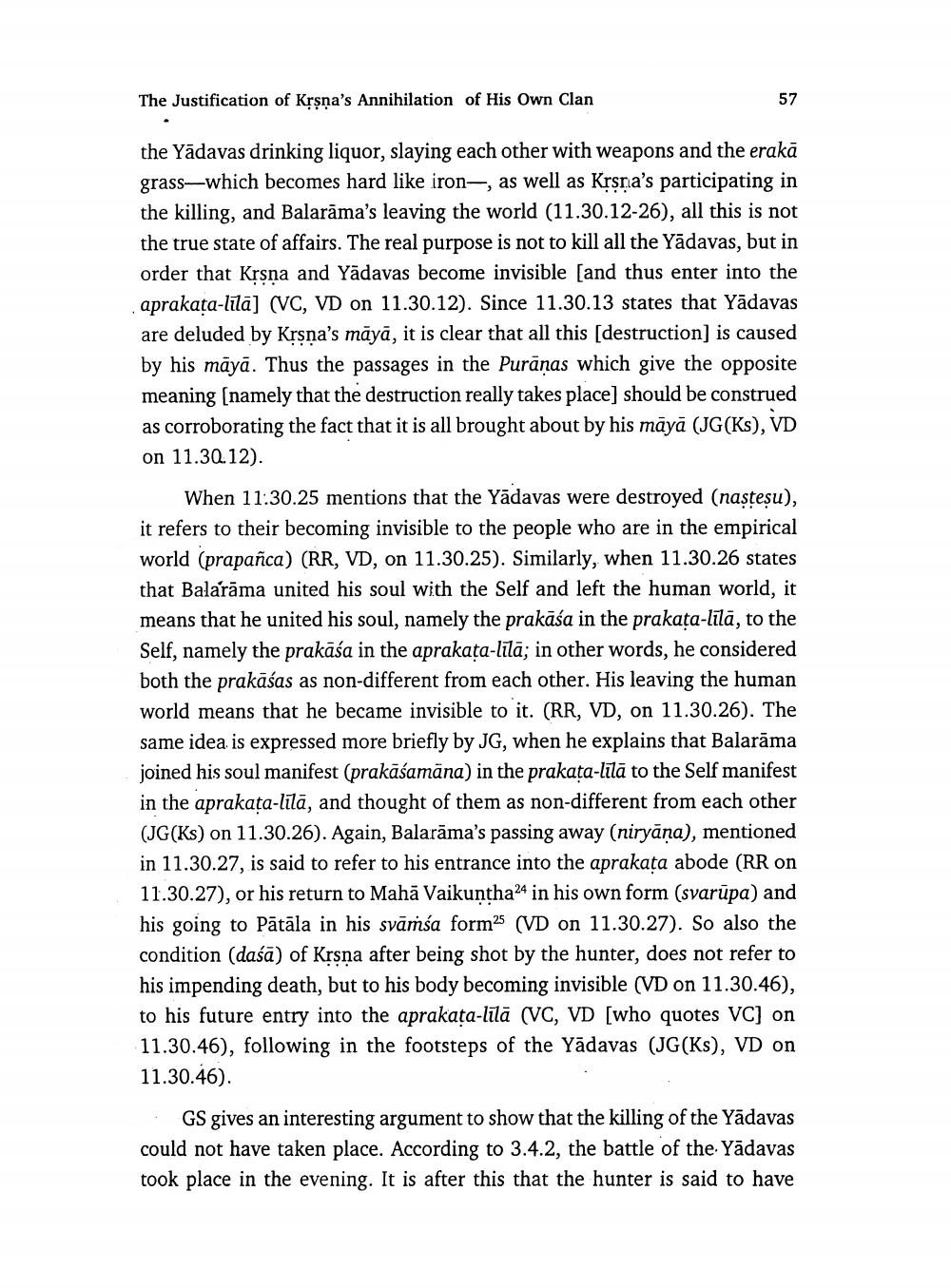________________
The Justification of Krsna's Annihilation of His Own Clan
57
the Yādavas drinking liquor, slaying each other with weapons and the erakā grass-which becomes hard like iron-, as well as Krsna's participating in the killing, and Balarāma's leaving the world (11.30.12-26), all this is not the true state of affairs. The real purpose is not to kill all the Yādavas, but in order that Krsna and Yādavas become invisible (and thus enter into the aprakata-līlā] (VC, VD on 11.30.12). Since 11.30.13 states that Yādavas are deluded by Krsna's māyā, it is clear that all this [destruction) is caused by his māyā. Thus the passages in the Purāņas which give the opposite meaning (namely that the destruction really takes place] should be construed as corroborating the fact that it is all brought about by his māyā (JG(Ks), VD on 11.30.12).
When 11:30.25 mentions that the Yādavas were destroyed (nastesu), it refers to their becoming invisible to the people who are in the empirical world (prapanca) (RR, VD, on 11.30.25). Similarly, when 11.30.26 states that Balarāma united his soul with the Self and left the human world, it means that he united his soul, namely the prakāśa in the prakata-līlā, to the Self, namely the prakāśa in the aprakața-līlā; in other words, he considered both the prakāśas as non-different from each other. His leaving the human world means that he became invisible to it. (RR, VD, on 11.30.26). The same idea is expressed more briefly by JG, when he explains that Balarāma joined his soul manifest (prakāśamāna) in the prakata-līlā to the Self manifest in the aprakata-līlā, and thought of them as non-different from each other (JG(Ks) on 11.30.26). Again, Balarāma's passing away (niryāna), mentioned in 11.30.27, is said to refer to his entrance into the aprakața abode (RR on 11.30.27), or his return to Mahā Vaikuntha24 in his own form (svarūpa) and his going to Pātāla in his svāmía forma (VD on 11.30.27). So also the condition (daśā) of Krsna after being shot by the hunter, does not refer to his impending death, but to his body becoming invisible (VD on 11.30.46), to his future entry into the aprakața-līlā (VC, VD (who quotes VC] on 11.30.46), following in the footsteps of the Yādavas (JG(Ks), VD on 11.30.46).
GS gives an interesting argument to show that the killing of the Yādavas could not have taken place. According to 3.4.2, the battle of the Yādavas took place in the evening. It is after this that the hunter is said to have




